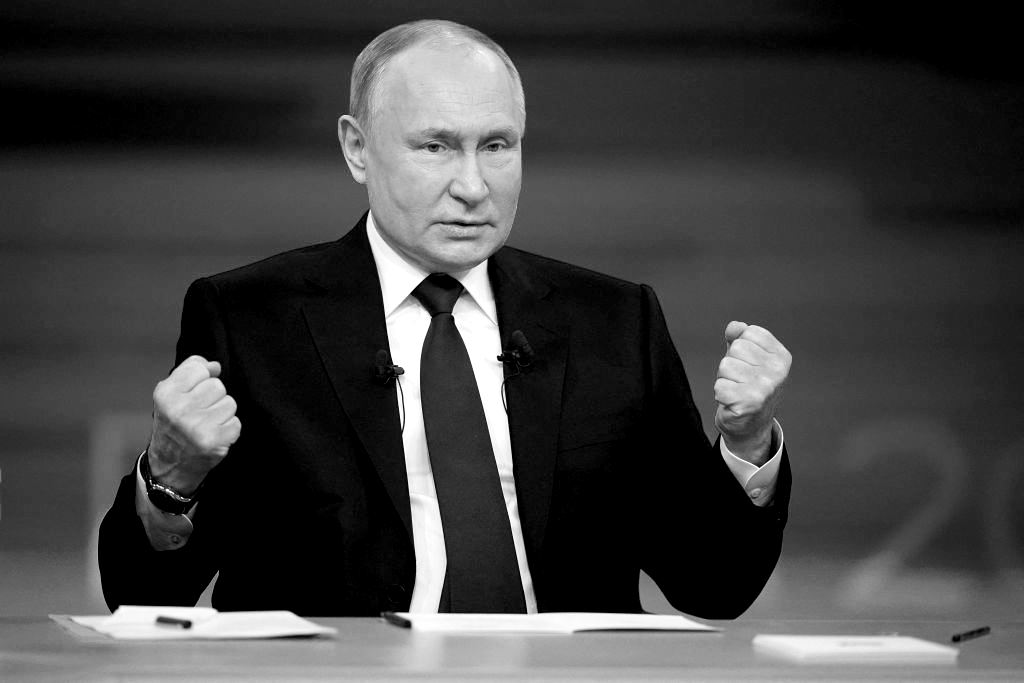Last Thursday’s prisoner exchange with the US was a rare victory for human rights in Russia. Vladimir Kara-Murza, the Vice Chairman of Open Russia and protégé of slain opposition figure Boris Nemtsov, was freed from his 25-year sentence for treason. Ilya Yashin, a liberal politician who called Vladimir Putin a ‘war criminal’ and said Russia’s wartime censorship laws were unconstitutional, saw his eight-and-a-half-year sentence terminated. The chairs of the shuttered human rights organisation Memorial Oleg Orlov and Sasha Skochilenko are also embracing their newfound freedom.
Despite only just escaping Putin’s draconian prisons, the eyes of these human rights crusaders are firmly on Russia’s future. Orlov has expressed cautious optimism that other prisoner exchanges will follow. Yashin and Kara-Murza have defiantly vowed to eventually return to Russia and continue their fights for freedom. Their courage should be lionised, as the hardest work of freeing Russian prisoners of conscience and combatting global repression of exiled Russian dissidents lies ahead.
OVD-Info, a Russian human rights and civil society organisation, noted that the swap deal released just 1 per cent of the 700 political prisoners in Russia. Hundreds more are mired in pre-trial detention, which can take months or years to culminate in an inevitable sentence. The former Mayor of Yekaterinburg Yevgeny Roizman is the most high-profile dissident stuck in Russian legal purgatory. Hours after Putin announced the start of Russia’s ‘special military operation’ in Ukraine on 24 February 2022, Roizman called the war ‘the betrayal of Russians’. For this comment and his subsequent anti-war YouTube videos, Roizman faces the possibility of five years in prison.
For every career opposition activist, such as Roizman, Kara-Murza and Yashin, there are dozens of Skolichenkos locked behind bars. These prisoners are ordinary citizens who have defied the climate of fearful passivity that surrounds them and heroically expressed their opposition to the war. Some have created public spectacles to showcase their opposition to the Ukraine war. Yegor Balazeikin was arrested for throwing Molotov cocktails at recruitment centers in St. Petersburg and Kirovsk. Despite being only 17 years old and suffering from a disabling autoimmune disease, Balazeikin was handed a six-year prison term in November. In a case that strikingly resembles Skolichenko’s plight, Andrei Boyarshinov was arrested for online posts supporting anti-war rallies in Kazan. On 7 May, he was handed a five-year sentence for terrorism by a military tribunal in Samara.
If we needed a clear reminder that the prisoner exchange is not a new dawn for human rights in Russia, we should look no further than the tragic case of Alexey Soldatov. As the finishing touches on the swap deal were completed, a Russian court sentenced Soldatov to two years in prison for ‘abuse of office’ on July 23. Soldatov is a nuclear physicist who led the Relcom computer network that connected the Soviet Union to the global Internet. Due to his seismic contributions to Internet connectivity in Russia, he served as Deputy Minister of Communications from 2008-10. As Soldatov is a symbol of modernity that a reactionary Putin disdains, he languishes in prison.
Earlier this week, I spoke with Alexey Soldatov’s son Andrei Soldatov about the shocking details of his detention. Andrei is an investigative journalist and editor of Agentura.ru, a watchdog on the activities of the Russian security services that was founded in 2000. He currently lives in London, as his truth-telling exposes about the Russian security services put him on the Russian Interior Ministry’s wanted list. Andrei decried the vengefulness of the Russian state, which targets even figures like his father who are not political dissidents. Andrei revealed that despite his father’s terminal illness, he was initially placed in a prison cell with forty other inmates and now is forced to share a space with nine other prisoners.
Repression in Russia continues to advance at an alarming pace
Even Russian anti-war figures who have sought refuge in Western countries are not safe from the Kremlin’s long repressive arms. Former President Dmitry Medvedev described Russia’s exiled dissidents as ‘traitors who have gone over to the enemy and want their Fatherland to perish’. In a veiled threat to Kara-Murza and Yashin, Medvedev said that Russian opposition figures should ‘adopt new names’ and ‘disguise themselves’.
Due to the Kremlin’s long track record of poisoning and assassinating its critics, Medvedev’s sinister words are not simply bluff. But even in the absence of political violence, the Russian state uses many time-tested tactics to instill fear in exiled dissidents. During our conversation, Andrei Soldatov described tactics such as blocks on passport renewals for Russians facing politically motivated charges and asset freezes.
The Russian state’s track record of weaponising Interpol restricts freedom of travel for dissidents. Even when Interpol’s opposition to politically motivated prosecutions stymies Russia’s transnational repression efforts, the Russian security services can petition like-minded figures in “friendly countries” to do their bidding. Countries with close relationships with the Russian security services, such as Turkey, Serbia, Belarus, and Kazakhstan, can become potential theatres for arrests of dissidents and extradition to Russia.
The situation for Russian human rights defenders at home and abroad is likely to get worse before it gets better. Vyacheslav Gimadi, the head of the legal department at Alexey Navalny’s Anti-Corruption Foundation, told me that simply discussing war crimes, using a ‘No to War’ or empty placard at a picket line and colouring your hair yellow-and-blue to show solidarity with Ukraine can lead to criminal charges. For dissidents living abroad, Gimadi expressed alarm to me about the growing number of foreign agent designations which prevent Russians in exile from working with compatriots at home.
While last week’s prisoner exchange is being correctly celebrated as a triumph for multilateral diplomacy and human rights, repression in Russia continues to advance at an alarming pace. For Kara-Murza, Yashin and their allies across the globe, the toughest challenges lie ahead.







Comments